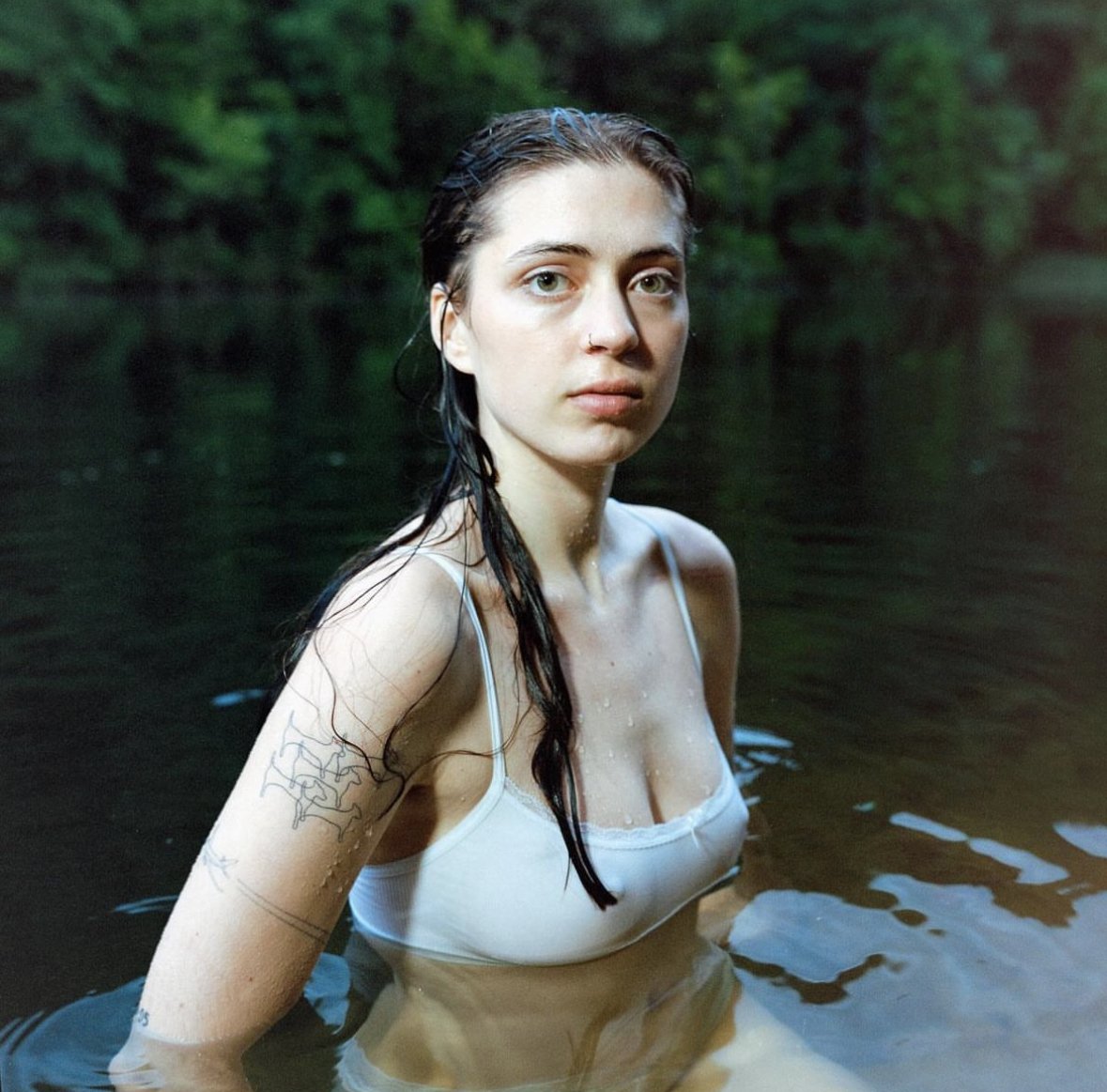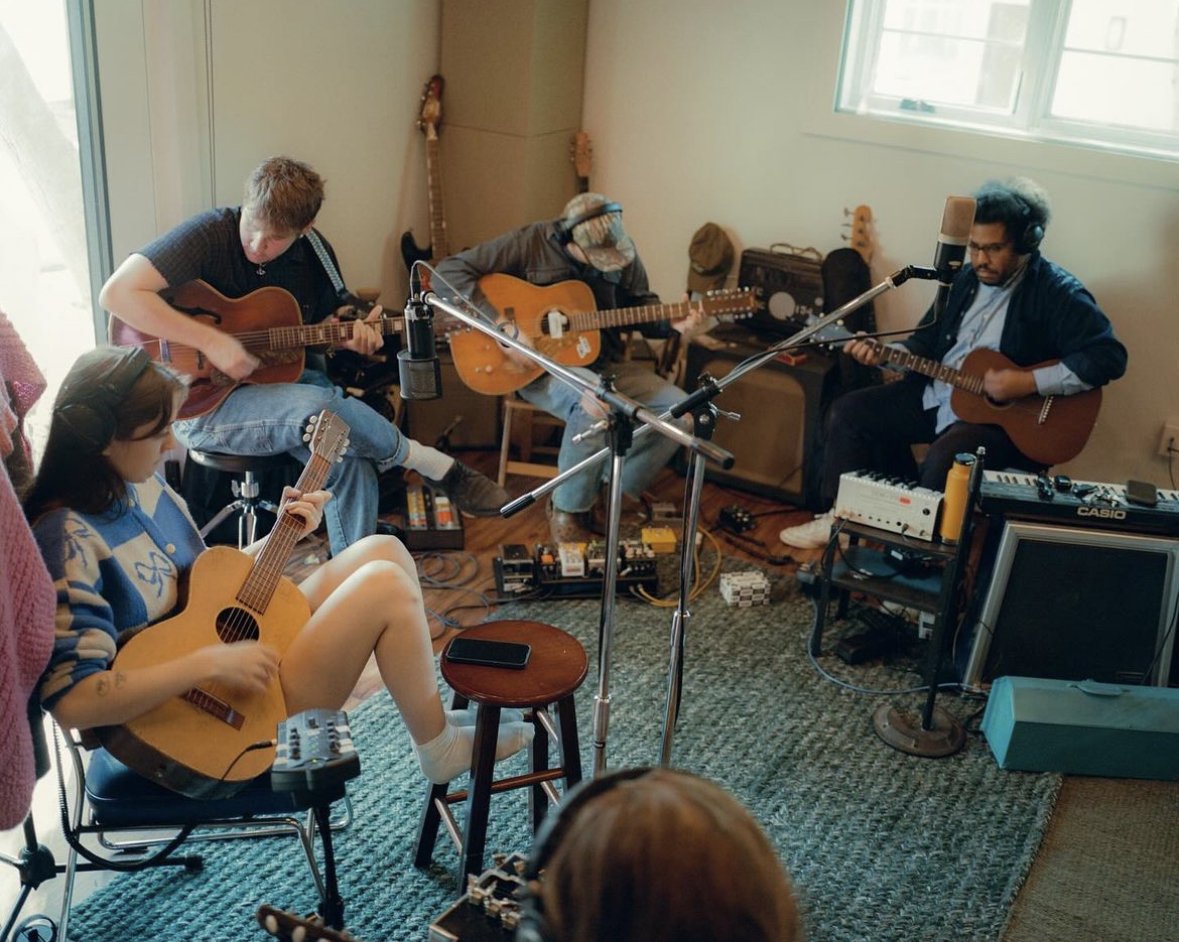Lizzy McAlpine bleeds vulnerability, honestly, and authenticity in ‘Older’
Album art for Older by Lizzy McAlpine
Singer-songwriter Lizzy McAlpine has exhibited her musical prowess time and time again throughout her career, possessing an incredible musical discography chock-full of eloquent lyricism, passionate vocal performance, and breathtaking instrumentation. Her first studio album, ‘Give Me a Minute’, charmed listeners with a gentle and wispy folk ambience; McAlpine built upon this style in her sophomore album, ‘five seconds flat’, where she combines her indie folk roots with an upbeat indietronica sound and a more theatrical production style.
‘Older’, the third studio album from Lizzy McAlpine, takes the strongest elements from both of her previous works and blends them into a genuine and impactful body of music. McAlpine returns to a primarily acoustic production style for the majority of tracks throughout ‘Older’, executing a naturally raw connection between the sound and the emotions conveyed by each of the tracks. In “Like It Tends To Do,” McAlpine completely encapsulates listeners into her music with her soft vocals accompanied by delicate strings and piano. The minimalist production choices continue on tracks like “Better Than This” and “Staying,” making the story-telling throughout Older immensely compelling within every single second.
However, McAlpine does not entirely leave behind theatrical production elements in her latest album; she carefully integrates inventive dynamics that only make the intense emotional moments throughout the album feel that much more meaningful. “All Falls Down” serves as one of the most experimental and unique tracks within McAlpine’s discography, with an upbeat instrumental that incorporates groovy percussion, wind, and brass sounds which create a whimsical baroque feel. Near the end of the song, the instrumentation culminates into a distorted drop that parallels the mental instability of the lyrics throughout the track. The production of “All Falls Down” makes its mark on listeners, and this song serves as a perfectly executed step outside of the box of ‘Older’s’ sonic atmosphere.
The penmanship of ‘Older’ is purely poetic, lyrical expertise. McAlpine explores a wide range of topics within her writing for the album, eloquently articulating heavy and sensitive topics like self-hatred, alcoholism, and domestic violence in her discussion of relationships and navigating through adulthood. ‘Older’ constantly asks questions that many people feel they might never find the answers to; in “Movie Star,” McAlpine proposes the question, “Who am I to you? Who am I to myself? What are you changing about me?” Self-doubt, fear, and pain contort and complicate the understanding of one’s identity and the roles one feels they should play within their lives. McAlpine ruminates over a wide array of similar difficulties throughout, using her words to connect with her listeners on the most personal levels.
All of the tracks are absolutely stunning in nearly every single way. McAlpine makes it obvious how intentionally she crafts the various elements in her songs to make an emotionally riveting final product. “Drunk, Running” showcases a wonderful synthesis of the album’s bewitching production elements, graceful vocal performance, and poignant writing style. McAlpine sings about a relationship in which her partner struggles with a drinking addiction, describing the manipulative connection as a form of addiction in and of itself; she writes “No one stops me / Nobody takes you from my hand / Even when you / Break your leg drunk running / Someone ought to / Hold me to my words.” “Drunk, Running” is powerfully haunting in every single way, a serendipitous yet calamitous work of art.
‘Older’ ends with the track “Vortex.” The song begins with only McAlpine’s vocals and piano performance as she recognizes a painful duality in her relationship and an inability to escape destructive cycles within her life. McAlpine cries “I’m tired of this and the way that it feels / I’m not there anymore, this has never been real.” As dissociation gravitates her away from reality, she continues tumultuous habits in life and love that only serve as her detriment. The production explodes at the end with flawlessly complex layers of synths, piano, guitar, and percussion as the vortex continues to perpetuate her suffering. It is difficult to describe how moving “Vortex” is, but the track beautifully exposes the struggles of attempting to heal and grow during the most difficult periods of life.
‘Older’ is painstakingly gorgeous through and through. In the album’s title track, McAlpine sings, “Wish I was stronger somehow / Wish it was easy / Somewhere I lost all my senses / I wish I knew what the end is.” Her personally and intimately crafted lyricism explores the hard-hitting realities of discovering oneself in her third studio album, showcasing the power of uncertainty amongst an onslaught of unanswered questions that seem like they might never come to an end.
Finding an album as emotionally moving and insightful as ‘Older’ is incredibly rare. Lizzy McAlpine has truly managed to create something special that will continue to impact listeners as they grow older in the years to come.
Lizzy will embark on a headline tour this year through North America, the UK, and Europe. You can listen to Older on Spotify at the link below.


